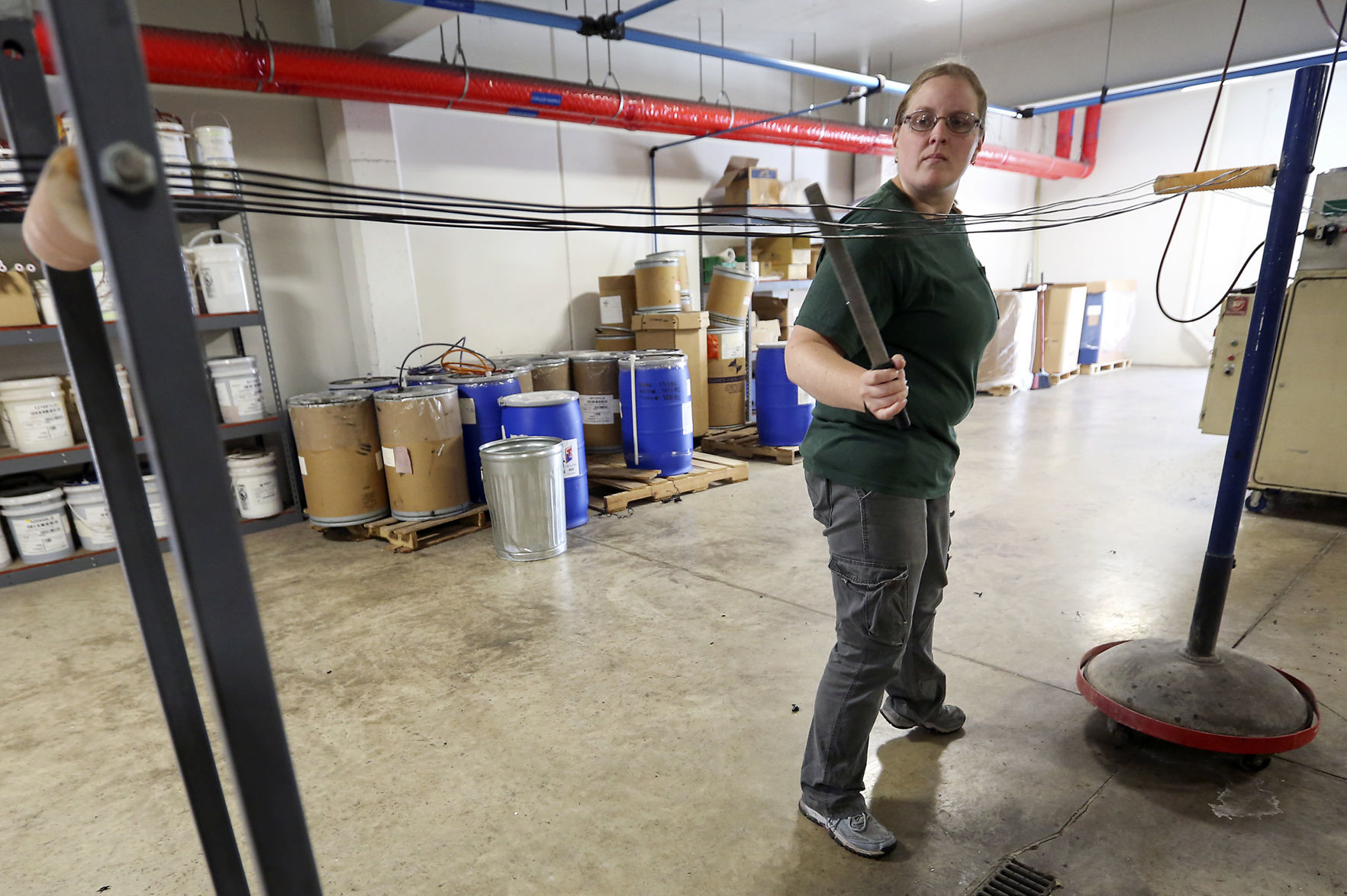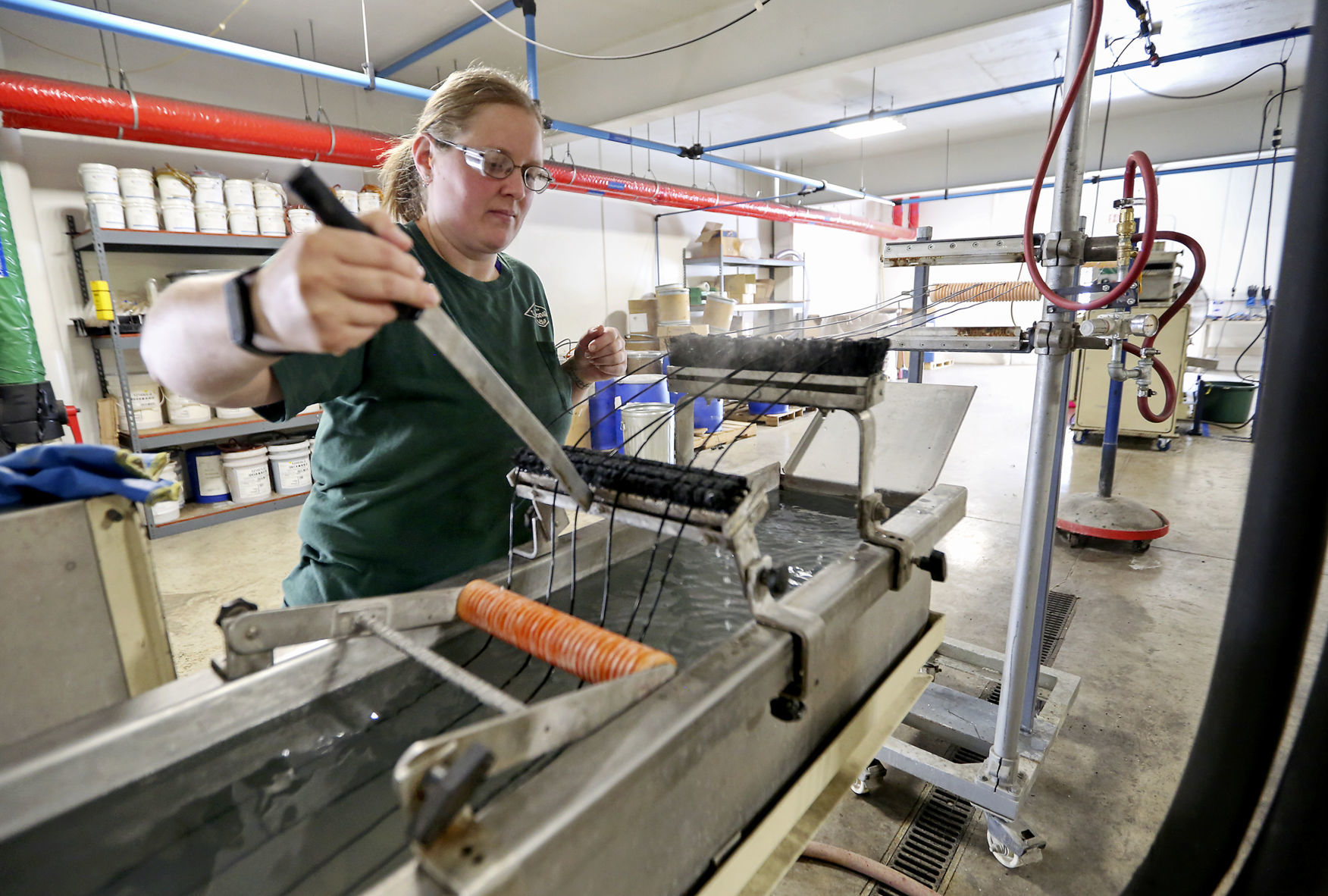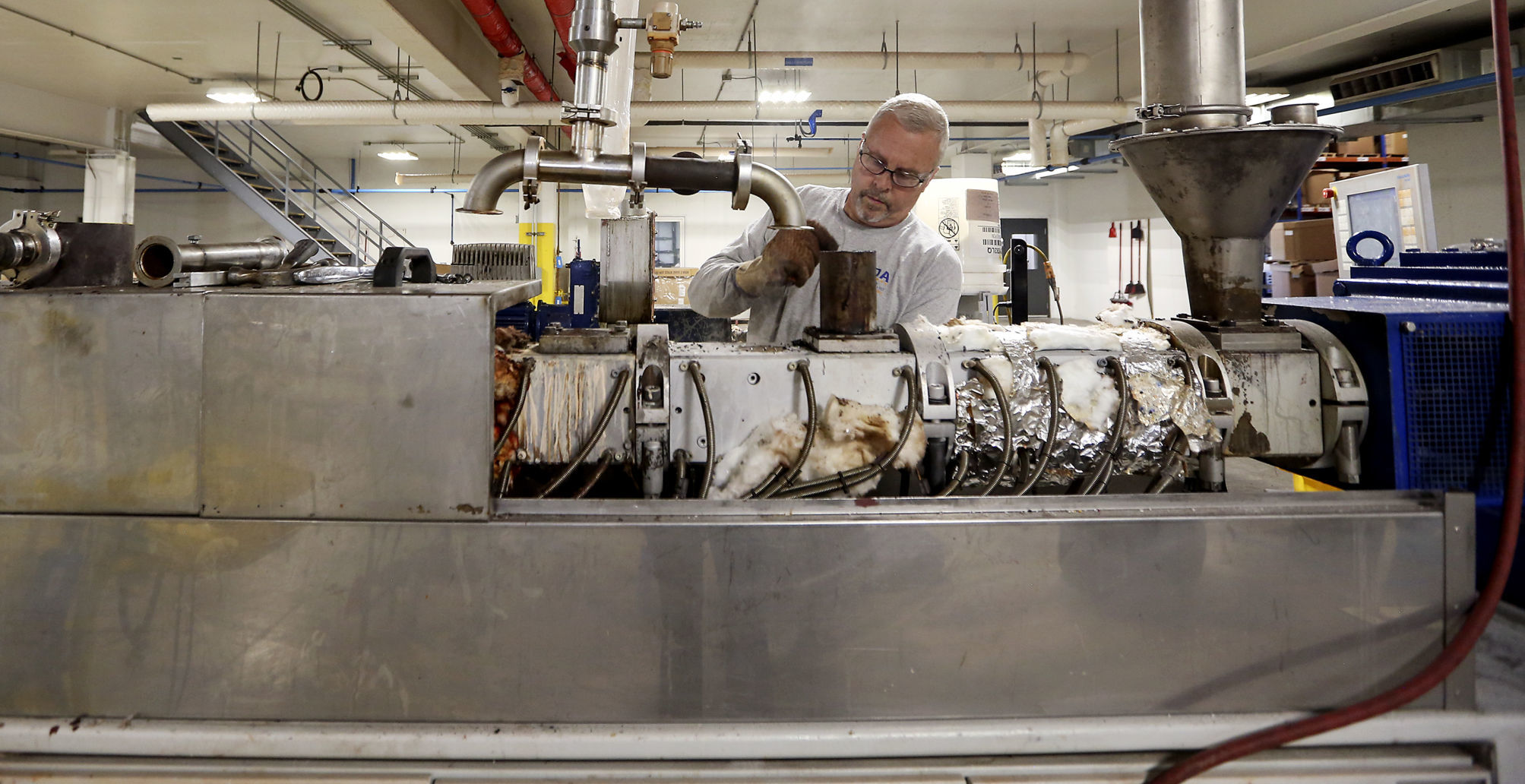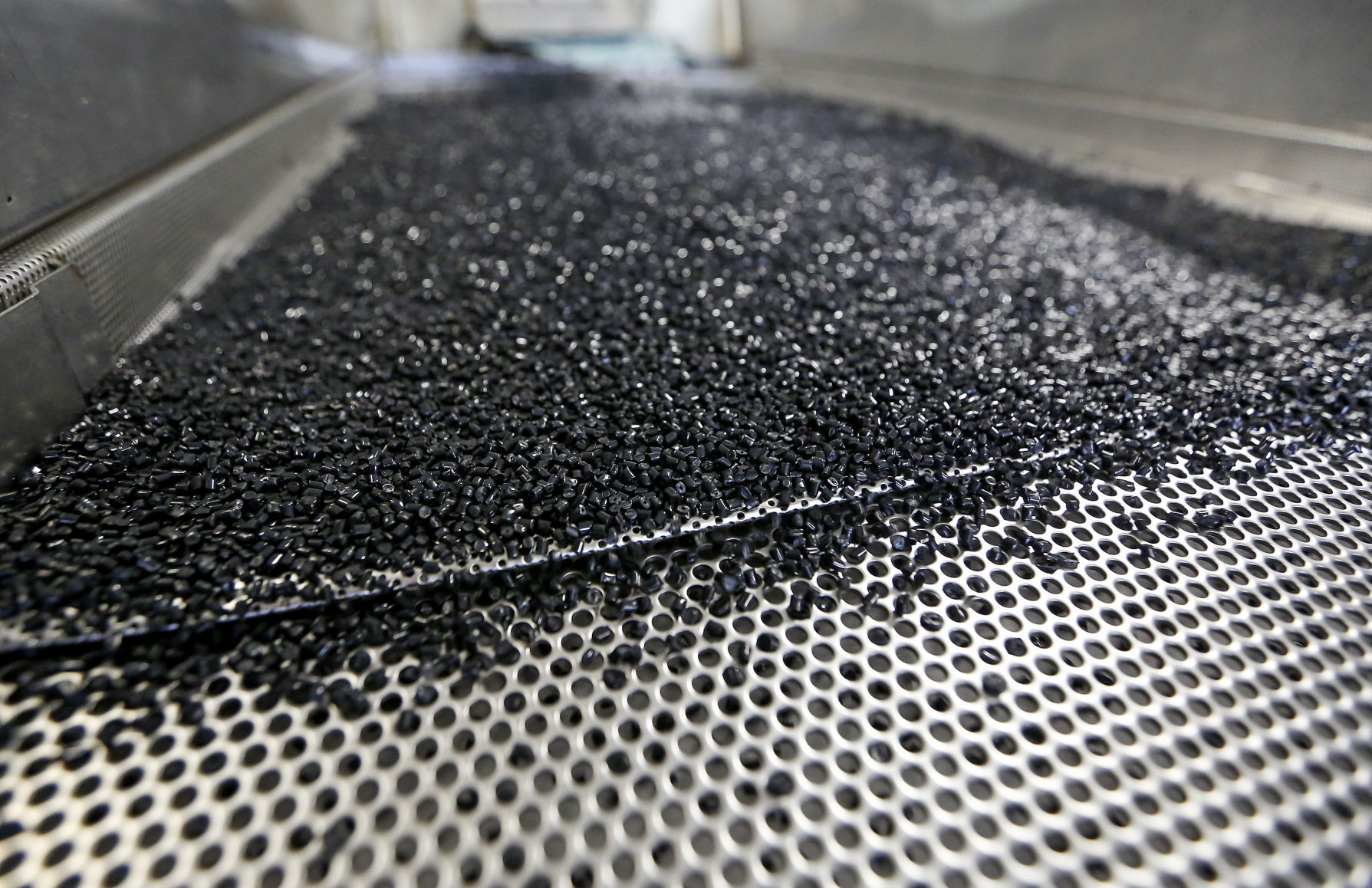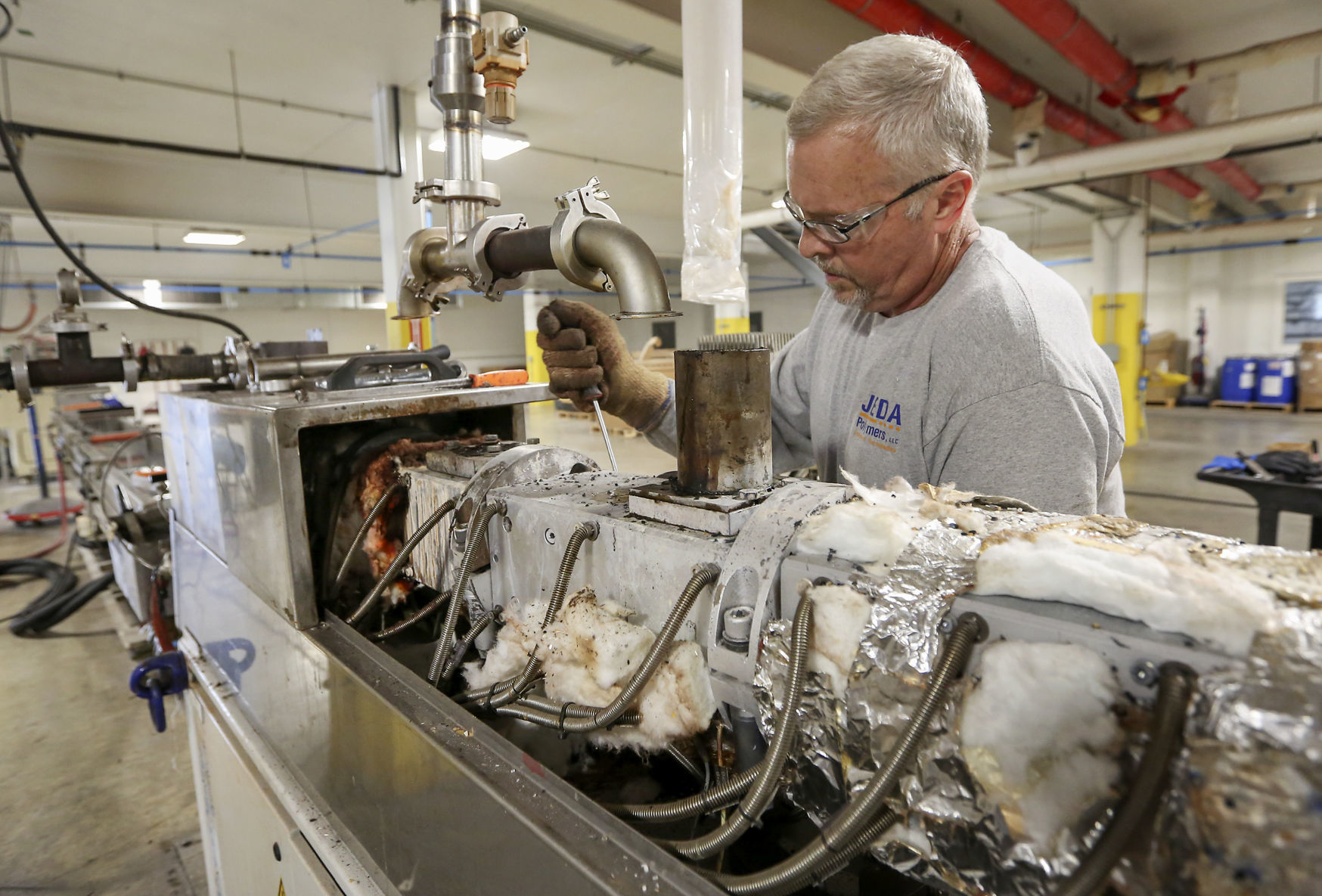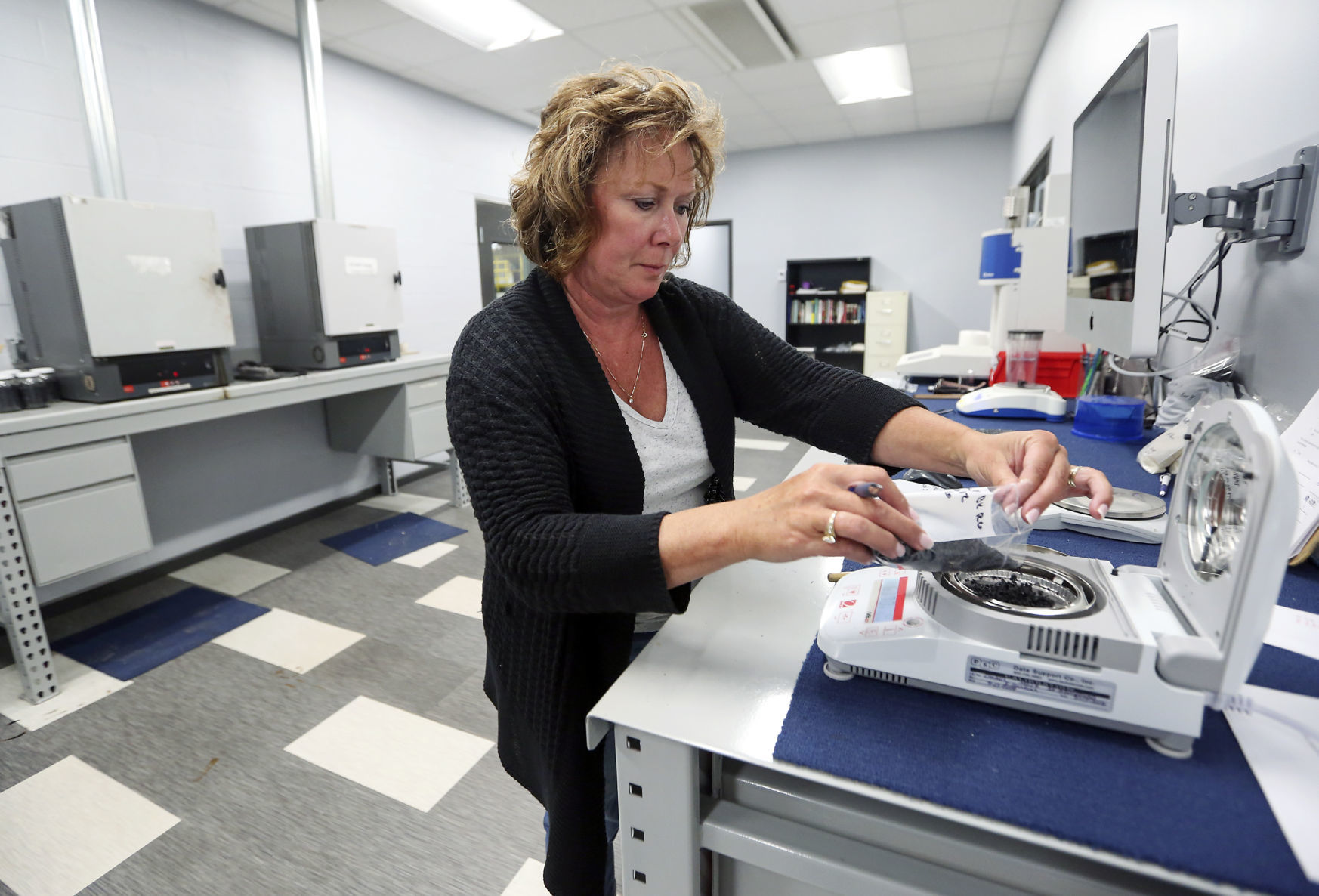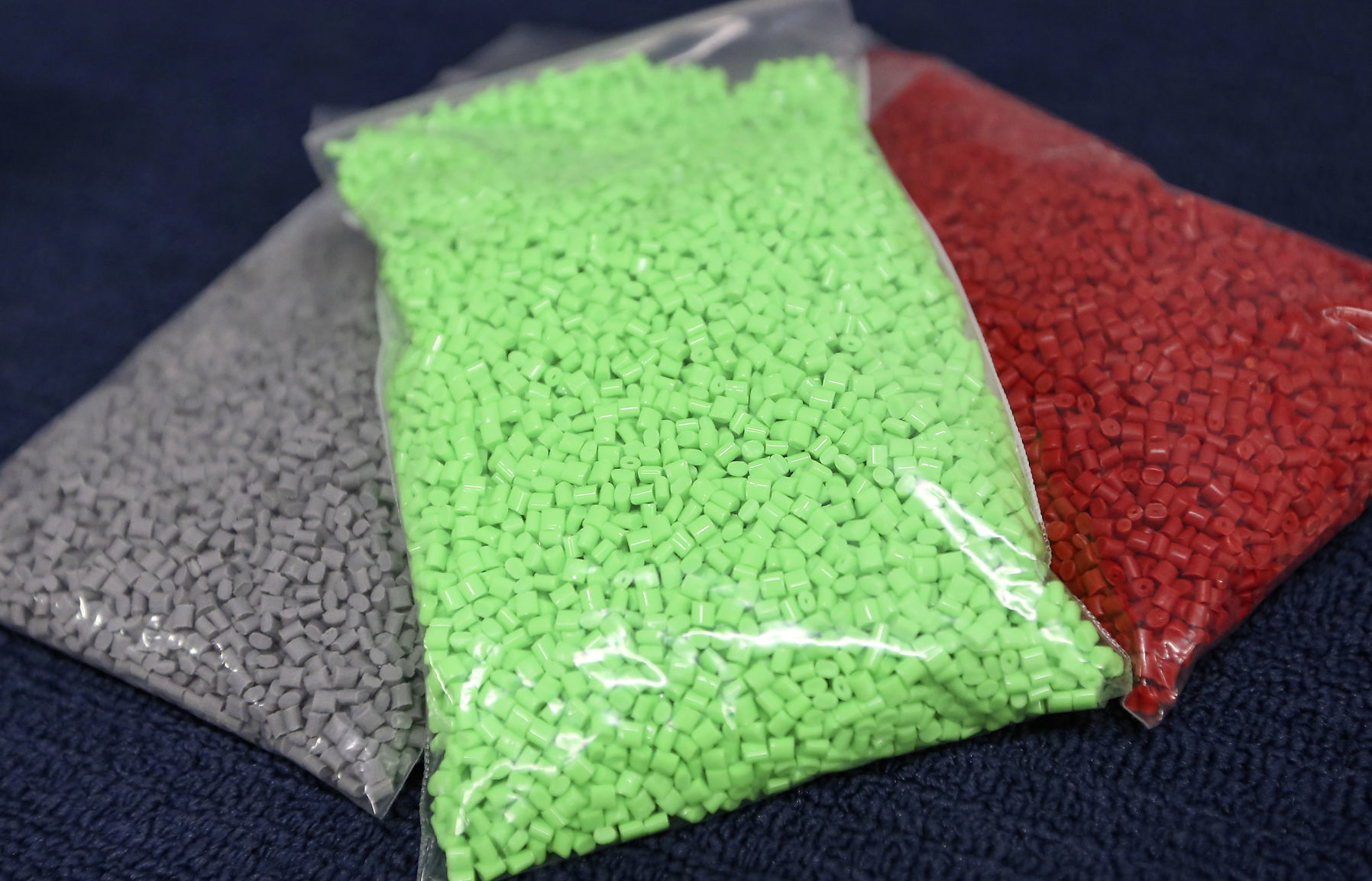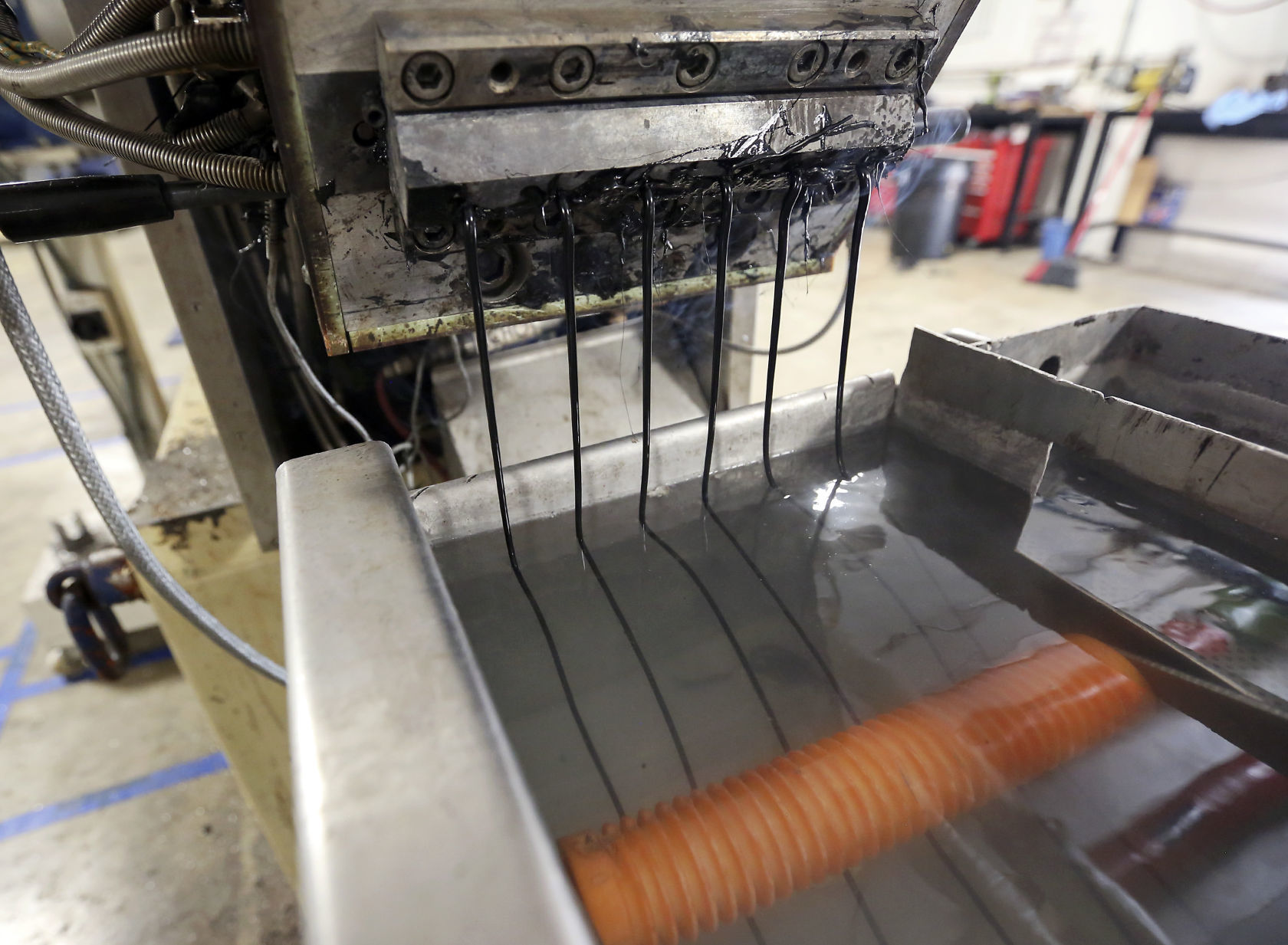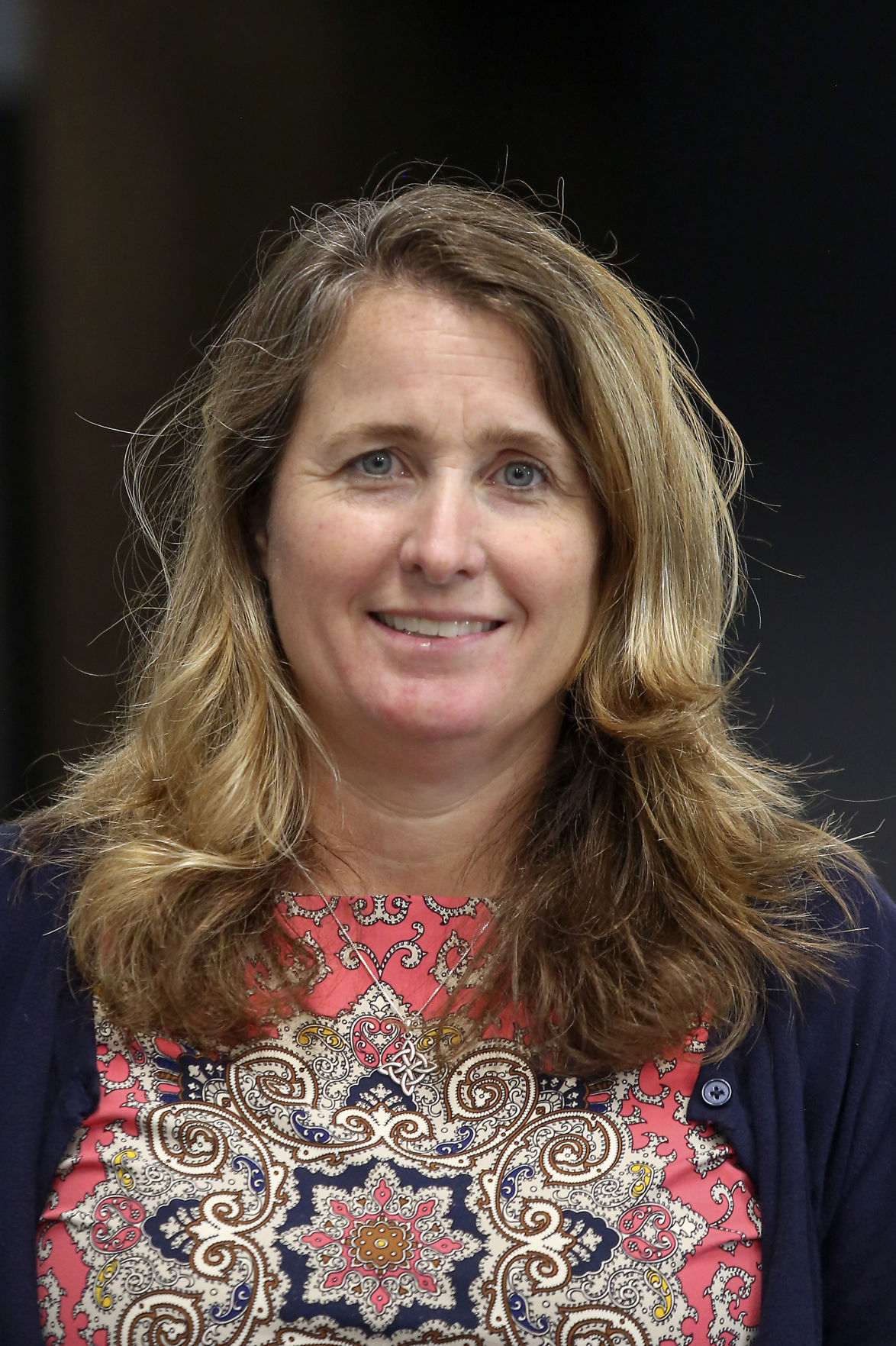DYERSVILLE, Iowa — At JEDA Polymers in Dyersville, everything starts and ends with a plastic pellet.
Within the company’s 43,000-square-foot headquarters, however, these plastics undergo a series of critical changes that prepare them for their end use.
Co-owner Jeff Goodwin said the company prides itself on creating engineering resins that meet the specific needs of its clients.
“The word ‘custom’ defines us pretty well,” he said. “We have a pretty standard portfolio of products that we sell, but we are always making new ones for specific needs. We are pretty good and pretty quick at tailoring new products and taking advantage of new opportunities.”
The customer-centric approach recently paid dividends at JEDA Polymers, located at 2315 Industrial Parkway SW.
The business moved to Dyersville in 2015 and started there with eight workers. The staff has grown to 14, and company officials said they hope to hire a half-dozen more in the near future.
CUSTOMIZING PLASTICS
The Dyersville facility operates 24 hours per day for five days each week. During this time, employees oversee a transformation process that prepares plastics for customers across the country.
Co-owner Ronda Haskell said the process begins with raw ingredients, often referred to as feedstocks. These can include both recycled plastic and “prime plastic,” an unprocessed form of plastic.
“We start with plastic that has never been processed and is pretty basic,” she explained. “And then we add these very specific additives and modifiers. We can add lubricants, UV protectants, heat stabilizers, impact modifiers. … We can make it tougher or more flexible. We can add colorants. We have a recipe for all these different kinds of materials.”
The process begins in an on-site laboratory, where employees test the characteristics of the raw plastics.
Workers then begin a blending process, through which the raw ingredients are introduced to a variety of modifiers and additives. These “recipes” can alter everything from the color of the plastic to the strength of the product.
The blends then are dropped from the upper level of the building to a lower one, where the recipes are further blended then melted within barrels.
The plastics come out of a die head in a strand and are cooled using both water and air. Machinery breaks the product down into individual pellets.
Finally, the plastic returns to the lab, where it is tested to ensure it meets all of the necessary characteristics.
CATERING TO CUSTOMERS
The customized pellets produced at JEDA Polymers are sold to injection-molding companies throughout the United States.
Haskell noted that these manufacturers ultimately use JEDA’s plastics to create furniture, agricultural tines and a variety of other items.
“We have shipped to customers in Florida and Alabama,” said Haskell. “But the core of our business is in the Midwest.”
Connie Nebel, who has been with the company since its arrival in Dyersville, noted that the volumes of engineered plastics shipped to customers can vary.
“Sometimes we ship one box out to customers, and other times we are sending out a whole truckload,” she said.
After recently landing a major customer in Muscatine, Iowa, JEDA is shipping out more of the high-volume orders than ever.
To accommodate the extra product, the company recently installed a 30-foot silo capable of holding 110,000 pounds of engineered resins. The silo provides temporary storage space until the product is transported to the customer.
MOVING TO DYERSVILLE
Goodwin said he has been in the plastics business since he graduated from college in the late 1970s.
His career path ultimately connected him with Haskell.
In 2007, the duo started JEDA Polymers in the central Illinois city of Decatur. The name of the business incorporates the first two letters of Jeff’s first name and the final two of Ronda’s.
About eight years after launching the company, Goodwin and Haskell realized they had outgrown the facility. They began the search for a community that could meet both the company’s current needs and its long-term vision.
Goodwin said JEDA Polymers settled on Dyersville largely because the company appreciated the connectivity between the city’s government and industrial park. By locating in 20 West Industrial Park, which is owned by Dyersville Economic Development Corp. JEDA also could build a facility to fit its exact needs.
Work began in the fall of 2014, and the company moved into the structure in August 2015.
The benefits of the move were quickly evident.
“In that old building (in Decatur), we had to make do with what we had,” Goodwin recalled. “With the Dyersville facility, we had the opportunity to build something that would really suit our needs. We were able to create efficiencies and keep our consumption down.”
Within the Dyersville facility, the company also is working to build a culture.
Nebel said employees don’t punch a time clock. Office workers and operations employees use the same parking spaces and break areas, a conscious effort to avoid what Nebel calls “two-class citizenship.”
“We feel that we all communicate and get along pretty well,” Nebel said. “The basis of everything we do is respect and understanding.”


